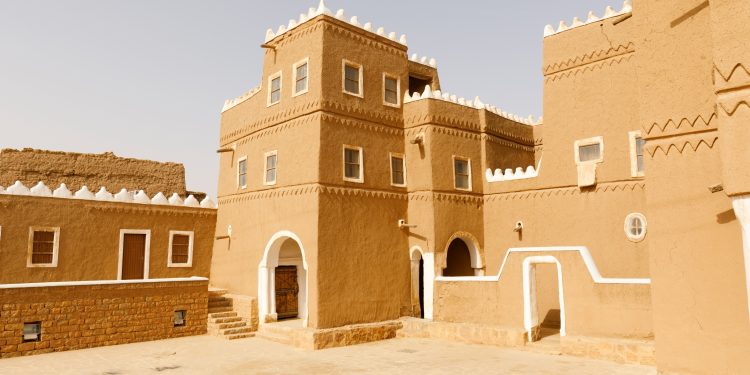In January 2024, the financial landscape of Saudi Arabia witnessed a significant uptick in residential mortgage loans, reaching a notable high of SR7.54 billion ($2 billion). This sum marks an 11-month record, as reported by the nation’s central banking authority. The increase is substantial, with a 21 percent rise or an additional SR1.3 billion when compared to the lending activity in the preceding month.
Several governmental efforts are considered instrumental in this growth, including initiatives to increase financial accessibility, the introduction of cost-effective housing solutions, and operational enhancements within the housing sector itself.
To fortify the foundation of this industry, the Saudi government has implemented numerous strategies to improve infrastructure and governance within its housing program.
These loans are primarily employed for the acquisition of residential properties such as houses, apartments, and land plots. A dominant 68 percent, equivalent to SR5.13 billion of these funds, were dedicated to house purchases, noting a 19 percent increase from the previous month.
Apartments were another significant portion, making up 26 percent of the total loans at SR1.97 billion, reflecting a growth of 17 percent during the same timeframe.
- January’s loan figures indicate a 21 percent increase from the previous month’s loans.
- Residential loans are predominantly used for buying houses, apartments, and land.
- A majority, 68 percent, of the loans were allocated for house purchases.
- Apartments made up 26 percent of the total loans.
Land purchase loans, while only comprising 6 percent of the total, exhibited the most significant growth rate at 73 percent, reaching SR440 million in January.
The transformation of the Saudi housing sector is fueled by initiatives like the Saudi Real Estate Refinance Co., established in 2017 by the Public Investment Fund, with the goal of increasing real estate market liquidity and providing more sustainable financing options for homebuyers.
Additionally, the Sakani program supports citizens in becoming homeowners by offering online application for instant approval, new housing creation, plot allocation, and subsidized mortgages among other financial aids, all tailored to match applicants with housing solutions that suit their financial capabilities.
The removal of value-added tax in 2020, which saw a 15 percent real estate sales tax be replaced by a 5 percent disposal tax, also included an exemption for first-time property purchasers on homes valued up to SR1 million.
To stimulate construction and increase land availability, a White Land Tax, charging 2.5 percent on undeveloped residential lots, was introduced.
The Saudi Central Bank’s decision to lower the required down payment for property acquisition from 30 percent to 5 percent has also contributed to the sector’s growth.
The establishment of the General Authority for Real Estate in 2017 serves as a regulatory body, promoting investment and protecting consumer interests within the real estate sector.
Despite these positive developments, a 10 percent decline in new residential bank loans was observed compared to the previous year, attributed to rising interest and borrowing costs. Additionally, the continuous rise in real estate prices for villas and apartments in 2023 led to reduced transaction volumes. Deloitte’s 2024 KSA market review revealed a 15 percent decrease in residential transactions across Riyadh, Jeddah, and Dammam, totaling SR79 billion.
In Riyadh and Jeddah, sales prices and rents have surged, with the former seeing a 5 percent increase for villas and 8 percent for apartments based on Ministry of Justice data. Deloitte noted that the majority of apartments sold in Riyadh were priced between SR250,000 to SR1 million, catering to the low to mid-income demographics.
Riyadh’s northern region has become a prominent residential area, while its southern part has experienced considerable growth in transaction shares, thanks to the presence of affordable housing options.
Conversely, Jeddah has seen a demand spike for higher-end residential properties, particularly in the northern sector, which has recorded significant price appreciation.
In an attempt to attract international investment and combat affordability issues, Saudi Arabia launched a premium residency visa in 2019, which was expanded in 2024 to include five new products. One such product ties residency to the ownership of real estate valued at a minimum of SR4 million, without any mortgages, present or future.
These measures aim to attract international investments, in line with Vision 2030’s objectives to diversify the economy and prioritize quality housing.
A Knight Frank survey conducted in 2024 indicated that 82 percent of high-net-worth individuals are interested in owning property in Saudi Arabia. However, the survey also pointed out a scarcity of local financing options for this demographic, suggesting this could be an opportunity for the Saudi banking sector to expand its services.


